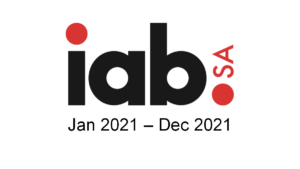

By Cora van der Merwe
Noseweek editor, Martin Welz, and Chaucer Publications (Pty) Ltd trading as Noseweek (the defendants) were sued for defamation in the Western Cape Division of the High Court in Cape Town by the plaintiff (Leonard Katz) (see Katz v Welz and Another (WCC) (unreported case no 22440/2014, 7-11-2017) (Davis J)).
The defendants sought discovery of certain documents from the plaintiff. The plaintiff resisted the demand and the matter came before Davis J late last year.
The defendants were substantially successful in the matter and were awarded costs.
Challenging the bill of costs
The plaintiff gave notice that he was opposing certain items contained in the bill of costs. In particular, he disputed the amount charged to the defendants by their own advocate and decided to complain to the Cape Bar Council. Having received the notice of taxation, he laid a similar complaint with the Cape Law Society against the defendants’ attorney.
Litigants sometimes hope that the opponent’s legal team will bankrupt them with attorney and own client costs to bring a speedy end to the jurisprudential battle. In all my years as a legal costs consultant, this was the first time that I came across a loser in litigation, who required his opponent’s attorney and own client account to be taxed down to a ‘reasonable fee’.
Limiting the damage
The plaintiff’s complaints gained no traction with the regulatory bodies and taxation day was looming.
The plaintiff then appointed counsel to appear at the taxation in order to secure a postponement. The purported purpose was so that the Bar Council would first have an opportunity to tax counsel’s attorney and own client account in the hope of reducing it, so as to place a cap on the amount that the taxing master would allow.
There is a principle in law that no litigant may profit from the litigation through fees recovered. By way of example, if an attorney (and counsel) collectively charge their client R 100 000 for a matter then the client may not recover more than that on taxation – even though it may be objectively possible.
Uniform Rules of court
High Court taxations are governed by rules 69 and 70 of the Uniform Rules of Court.
In respect of counsel’s account, r 69(5) stipulates: ‘The taxation of advocates’ fees as between party and party shall be effected by the taxing master in accordance with this rule and … he shall allow such fees … as he considers reasonable.’
Rule 70 governs the Taxation and Tariff of Fees of Attorneys.
Bills of cost are presented at taxation by attorneys and the bill includes the accounts of counsel, and any other disbursements that arise from the matter.
There can only ever be one impediment to the taxing master proceeding with a taxation. Rule 70(4) provides that: ‘The taxing master shall not proceed to the taxation of any bill of costs unless he is satisfied that the party liable to pay the same has received due notice as to the time and place of such taxation and notice that he is entitled to be present thereat.’
Advocates never render two accounts on differing scales
The function of the various Bar councils and statutory law societies is to – on request of an aggrieved client of an advocate or attorney – assess whether the client has been overreached.
The plaintiff, a litigator with over 30 years’ experience, lost sight of the fact that counsel never renders two separate accounts relating to the same matter: One on an attorney and own client scale and another on a party-and-party scale. The taxing master always looks at counsel’s attorney and own client account in a party-and-party taxation and then decides what is fair and reasonable for the losing party to pay.
The 1942 Cape High Court case of Barnett v Isemonger 1942 CPD 325 regarding the function of the taxing master is as true today as it was back then:
‘The costs to be allowed need not be necessary – still less “absolutely necessary”: If they are, though not strictly speaking necessary, yet proper in the sense of being reasonably incurred, and are not incurred or increased … “through overcaution, negligence or mistake,” … or, are not, in the words of Gail, “delicate, noodeloose en voluntaire of vrywillige,” then they should be allowed. I repeat that “the true position is that the taxing master has still to steer his difficult course between the Scylla of liberality and the Charybdis of niggardliness”.’
The taxing master has a wide discretion, which is exercised by applying his mind to the Uniform Rules of Court, judicial precedent, the principles of the law of costs, and the practice that prevails in the court in which they sit. The remedy for an aggrieved party is not to attempt to delay a taxation, but to take a matter on review. Judicial decisions have demonstrated time and again that this is the only way.
Cora van der Merwe BA (UJ) BA (Hons) (cum laude) (UP) is the proprietor of Legally Accurate Cost Consultants in Pretoria.
Mrs Van der Merwe acted on behalf of the defendants with regard to the bill of costs and taxation.
This article was first published in De Rebus in 2018 (Oct) DR 56.





De Rebus proudly displays the “FAIR” stamp of the Press Council of South Africa, indicating our commitment to adhere to the Code of Ethics for Print and online media, which prescribes that our reportage is truthful, accurate and fair. Should you wish to lodge a complaint about our news coverage, please lodge a complaint on the Press Council’s website at www.presscouncil.org.za or e-mail the complaint to enquiries@ombudsman.org.za. Contact the Press Council at (011) 4843612.
|
South African COVID-19 Coronavirus. Access the latest information on: www.sacoronavirus.co.za
|

